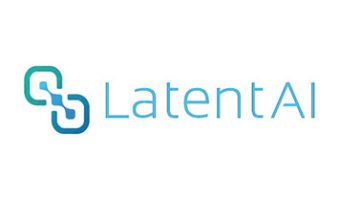
Artificial Intelligence Center
A powerful legacy; a visionary future
Our researchers work together and across disciplines to deliver on the promise of AI. We are pushing technical boundaries to create leading-edge technologies and we are exploring their ethical deployment across a broad range of application areas.
Machine learning is a major focus, both as a core research area and as an enabler for natural language processing, computer vision, autonomy, and intelligent assistance. We are pioneering methods to enable effective learning when data is scarce, as well as to understand the limits of learned models. Effective human-machine interaction is a second focus, to ensure that humans can readily understand and direct AI systems. Our research leverages symbolic reasoning for areas such as planning and bioinformatics and hybrid neural-symbolic architectures for tasks that require a combination of learning from data and compiled knowledge.
Founded in 1966, SRI’s Artificial Intelligence Center has played a key role in AI research since the field’s early days. The center has been the source of many seminal contributions to AI, spanning mobile robotics (Shakey), search (the A* algorithm), planning (STRIPS), image understanding (the RANSAC algorithm, TerraVision) and information extraction from text (FASTUS).
The center has an outstanding track record of moving research into the real world. Spin-offs built using our technology include: Siri (acquired by Apple), Tempo AI (acquired by Salesforce), Meta (acquired by the Chan-Zuckerberg Initiative), Summly (acquired by Yahoo), and Social Kinetics (acquired by Redbrick Health). Recently hatched companies include: Vitrina AI, Kasisto, Pulse, and Confidencial. Our BioCyc family of bioinformatics knowledge bases and tools has been licensed by over 11,000 users to support biological research at universities and corporate labs around the world.
Human language technologies
Agent-based systems
Computer perception
Computers, humans, and AI
Bioinformatics
Machine Learning
Artificial intelligence in the real world











Our work
Our latest publications
-
The Genome Explorer Genome Browser
In this paper we report on a major update to our browser, Genome Explorer, that provides nearly instantaneous scaling and traversing of a genome, enabling users to quickly and easily…
-
Automating the Derivation of Unification Algorithms. A Case Study in Deductive Program Synthesis
The unification algorithm has long been a target for program synthesis research, but a fully automatic derivation remains a research goal.
-
An Evaluation of ChatGPT and Bard (Gemini) in the Context of Biological Knowledge Retrieval
We evaluate the effectiveness of chatbots in retrieving biological knowledge for curation and research purposes.
Artificial intelligence leadership
-

Patrick Lincoln
President, Information and Computing Sciences
-

Karen Myers
Vice President, Information and Computing Sciences and Lab Director, Artificial Intelligence Center
Our featured innovators
-

Dayne Freitag
Technical Director, Artificial Intelligence Center
-

Peter Karp
Technical Director, Artificial Intelligence Center
-

Melinda Gervasio
Technical Director, Artificial Intelligence Center
-

Eric Yeh
Advanced Computer Scientist II, Artificial Intelligence Center
-

John Byrnes
Associate Technical Director, Artificial Intelligence Center
-

Pedro Sequeira
Advanced Computer Scientist, Artificial Intelligence Center